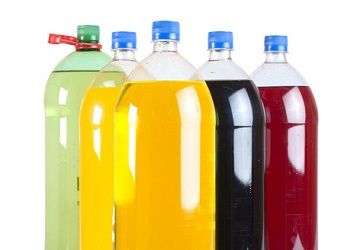Americans Consuming Too Many Sugary Beverages, CDC Says
Despite soda taxes in some states, Americans are still consuming too many sugar-sweetened beverages. This is according to the latest report from the Centers for Disease Control and Prevention. Nearly half of all American adults consume at least one sugar-sweetened beverage daily, the CDC says. Almost two-thirds of children consumed a sugar-sweetened beverage over the same study period. Boys consumed more than girls.

The Centers for Disease Control and Prevention looked at data from the National Health and Nutrition Examination Survey to establish the level of sugary beverage consumption.
Despite efforts aimed at reducing the public’s consumption of sugar-sweetened beverages, adults and children are consuming unhealthy amounts of sugar through the consumption of these types of products.
RELATED: More Coverage on Sugar-Sweetened Beverages
· 11 States with the Worst Dental Health
· WHO Urges Higher Global Taxes on Sugary Drinks
· Total Tooth Loss Linked to Consumption of Sugar-Sweetened Beverages
According to the Centers for Disease Control and Prevention, sugary drinks are some of the leading sources of added sugar in the typical American diet. The CDC also notes that excessive consumption of these types of beverages is associated with tooth decay and dental caries, weight gain and obesity, type 2 diabetes, gout, and heart, kidney, and non-alcoholic liver disease.
The CDC defines sugar-sweetened beverages as any liquid that is sweetened with a form of added sugar. Examples of sugar-sweetened beverages include soda, fruit drinks, sports drinks, energy drinks, and sweetened coffee beverages.
The CDC also used data from the National Health and Nutrition Examination Survey to measure the consumption of SSBs in the United States. Data was collected from 2011 to 2014 and showed that about one-half of all U.S. adults, or 49.3 percent, consume at least one SSB every day. The highest intake of SSBs occurred in young adults. Men consumed, on average, more of their daily caloric intake from SSBs when compared to rates of consumption among women.
Researchers also measured the rate of SSB consumption among children over the same time. The report showed that almost two-thirds of children in the U.S. consumed an SSB in any given day, making up 62.9 percent of the population of children in the country. Boys consumed more of these types of beverages compared to girls, with SSBs making up about 7.3 percent of a typical boy’s caloric daily intake.
The Dietary Guidelines for Americans recommend that added sugars make up no more than 10 percent of all calories ingested each day, and that people should choose beverages with no added sugars if possible. To curb sugar consumption, several states have also enacted soda taxes to raise the price of these unhealthy products, and organizations like the World Health Organization (WHO) have called for increased taxes on these types of products, since they are so closely linked to rising rates of a variety of public health problems.
ACTIVA BioACTIVE Bulk Flow Marks Pulpdent’s First Major Product Release in 4 Years
December 12th 2024Next-generation bulk-fill dental restorative raises the standard of care for bulk-fill procedures by providing natural remineralization support, while also overcoming current bulk-fill limitations.